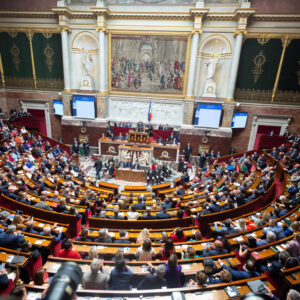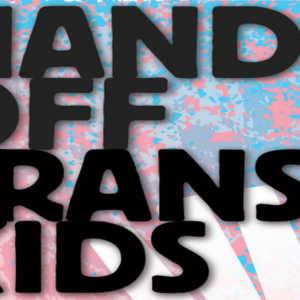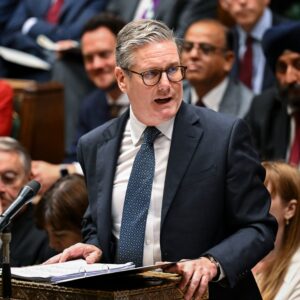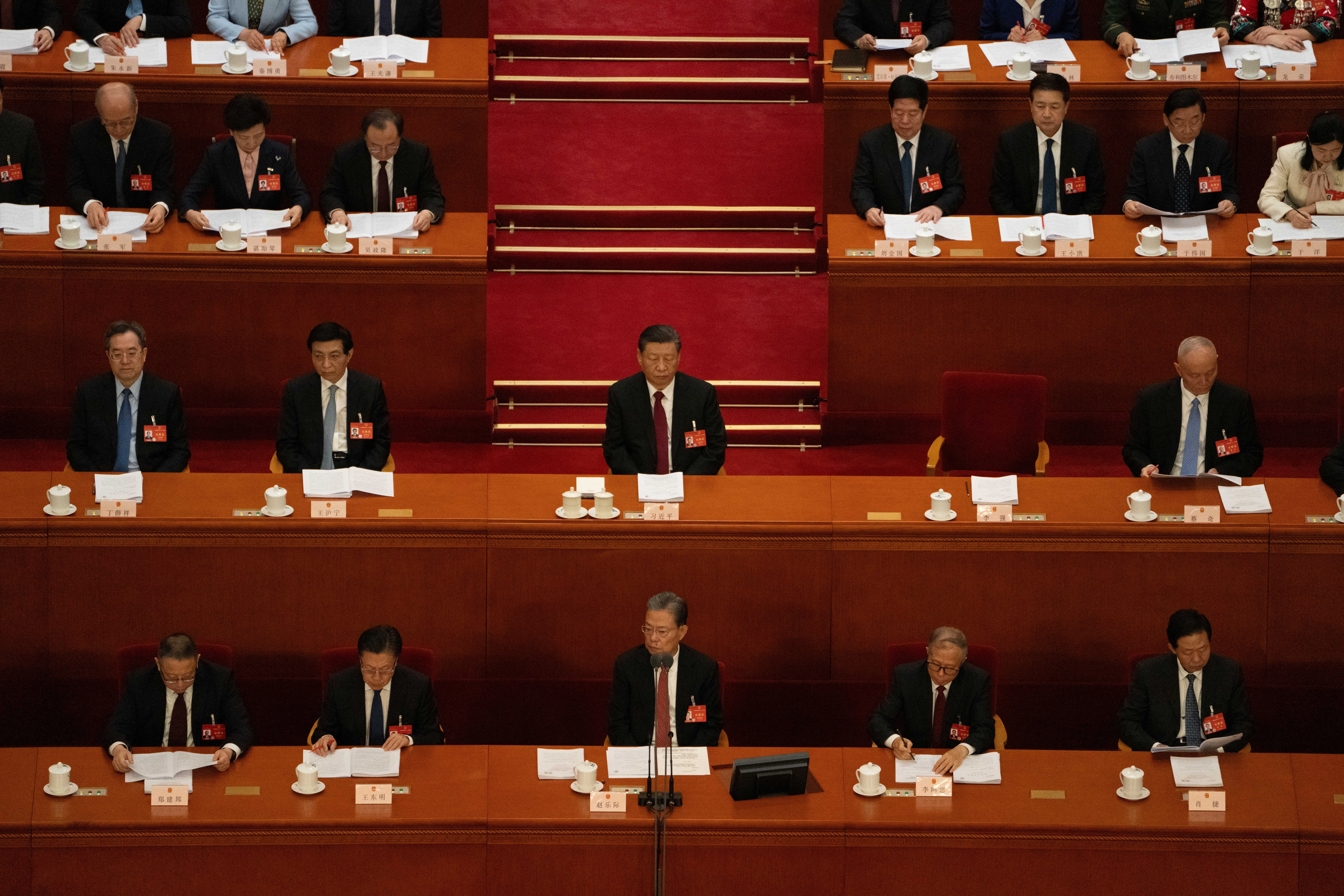Upon his arrival at London’s St. Pancras International train station, Ernest was seized by the jaws of an unfathomable bureaucratic machine. The French state, aware it could not pry the desired answers from Ernest within its own borders, sent hushed whispers across La Manche, preceding the train’s arrival, preparing the sinister trap that would ensnare him the moment he stepped onto foreign soil. For six hours, he was subjected to questioning about his political beliefs, as though he were but a cog in the British state’s apparatus. It was during the interrogation, in a cold and sterile room, where the true absurdity of his situation revealed itself. The faceless Police interrogators demanded that Ernest disclose the names of the “anti-government” authors in the catalogue of the publishing house La Fabrique, for which he worked. The chilling question hung in the air like a guillotine blade, ready to sever his ties to the free world.
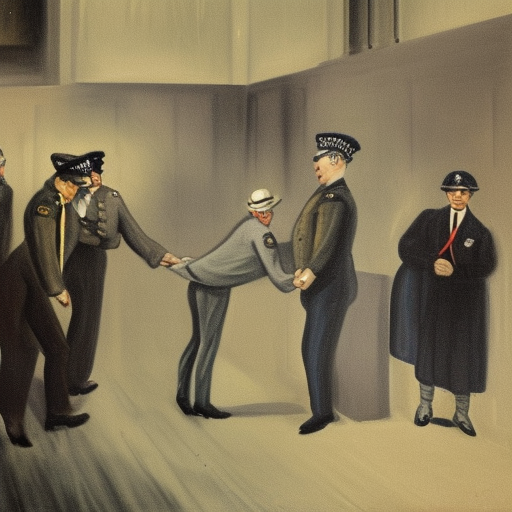
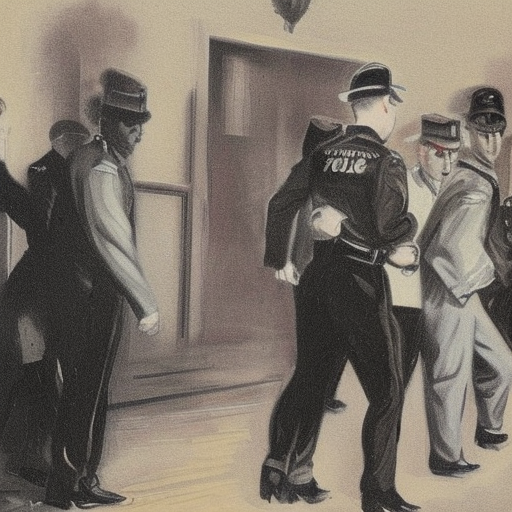
Though released on bail the following day, the confiscation of his phone and computer served as a chilling reminder of the omnipresent power of the French and British state. France and Britain, those great beacons of liberty and free expression, would quickly extinguish their own light at the first sign of a threat. A statement from the publishers echoed the surreal nature of the inquiry:
“Perhaps most seriously, during his interrogation, he was asked to name the ‘anti-government’ authors in the catalogue of the publishing house La Fabrique, for which he works. None of these questions should be relevant to a British police officer.”
Yet there he was, trapped in a world where the French State’s desire for control had insidiously seeped into the realm of literature and ideas. This focus on the political beliefs of authors associated with La Fabrique served as a stark reminder of the precarious balance between liberty and oppression, and the potential for counter-terrorism powers to be manipulated in the pursuit of silencing dissent.
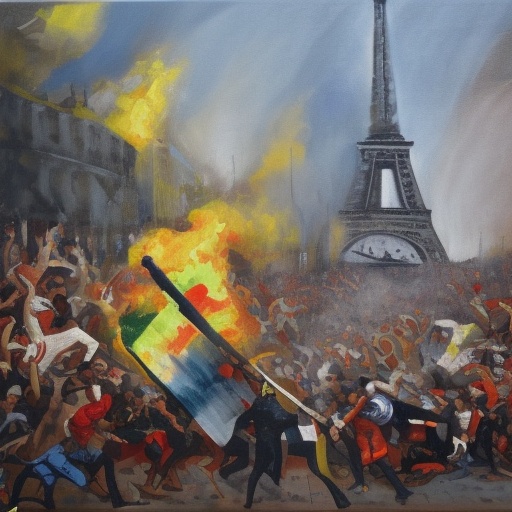
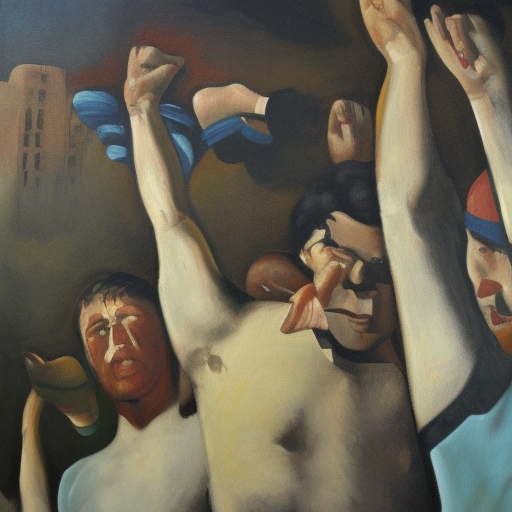
The absurdity of Ernest’s arrest has not gone unnoticed. Publishers, writers, and human rights groups alike have voiced their disquiet, condemning the government’s utilisation of counter-terrorism powers as a means to quash dissent. “This is a chilling attack on the freedom of expression,” warned PEN International, a global writers’ association. The National Union of Journalists (NUJ) joined the outcry, expressing dismay at the extraordinary actions of the British police, who have acted at the request of the French government. Pamela Morton, a senior organiser for books and magazines at the NUJ, remarked, “The arrest of Ernest is a serious threat to the freedom of the press.”
The repercussions of this Kafkaesque ordeal extend beyond Ernest himself, casting doubt on the future of the London Book Fair. The event, a beacon for international publishers and authors, now bears the taint of a government willing to silence dissenting voices. Karen Sullivan, founder of independent publisher Orenda Books, lamented, “This arrest is a major blow to the London Book Fair.”
The disconcerting arrest of Ernest raises grave concerns about the state’s commitment to safeguarding freedom of expression. It is vital that the government acknowledges the scope of its own power and ensures that counter-terrorism measures are not exploited to stifle dissent. The unnerving episode of Ernest’s arrest exposes an eerie interplay between nations, with the French poodle skilfully manipulating the English bulldog’s tail in a sinister dance. This bizarre spectacle underscores the hidden dangers that emerge when one government wields influence over another in matters that jeopardise the essence of individual freedom.
Source >> anti capitalist musings
Art Book Review Books Capitalism China Climate Emergency Conservative Government Conservative Party COVID-19 Creeping Fascism Economics EcoSocialism Elections Europe Event Video Far-Right Fascism Film Film Review France Gaza Global Police State History Imperialism Israel Italy Keir Starmer Labour Party London Long Read Marxism Marxist Theory Migrants NATO Palestine pandemic Protest Russia Solidarity Statement Trade Unionism Trans*Mission Ukraine United States of America War
Latest articles
- France after the elections: How should the radical left act?In the wake of the National Assembly’s dissolution and new parliamentary configuration, La France Insoumise (LFI) should adopt a clear stance of radical opposition, emphasizing its commitment to anticapitalist principles and democratic reforms while avoiding any compromise with the existing government unless it secures absolute majority support from the populace, argues Gilbert Achcar.
- Why Socialists Oppose the Two‑Child Welfare CapIn this article, Simon Hannah explores why socialists vehemently oppose the government’s two-child welfare cap, arguing that it stems from austerity measures and reactionary views on the poor.
- Hands off Trans KidsA pamphlet from Anti*Capitalist Resistance.
- Two Child Benefit RevoltDave Kellaway responds to the revolt by Labour MPs and others to the Labour government keeping the Tories’ hated two child benefit cap.
- The beginning of the end of China’s rise?This is the second interview in a two-part series. The first interview (“Opposing US militarisation in the Asia-Pacific should not mean remaining silent on China’s emerging imperialism“) covered the nature of China’s state, its status in the world today, and implications for peace and solidarity activism.


